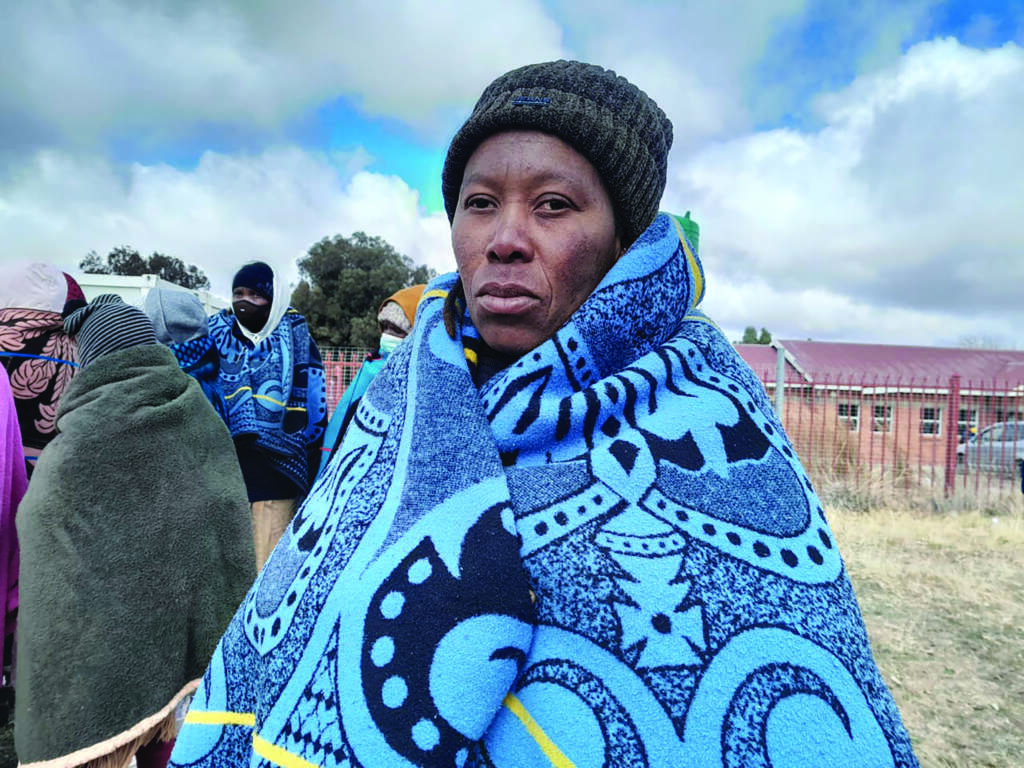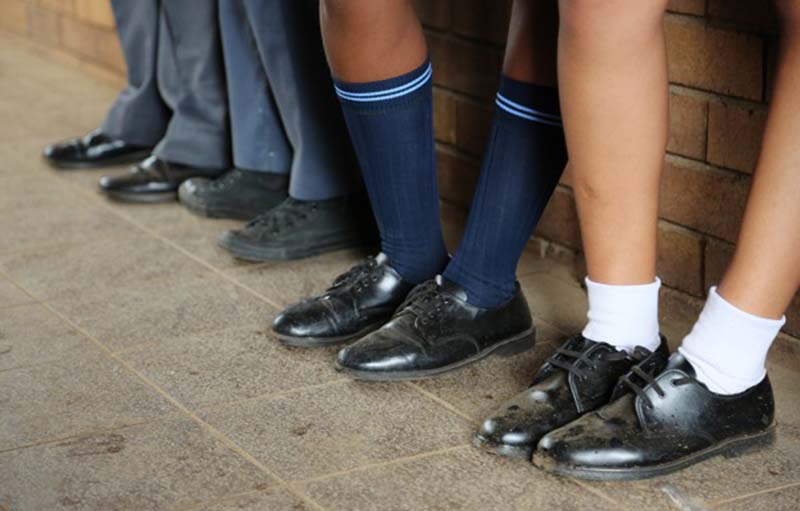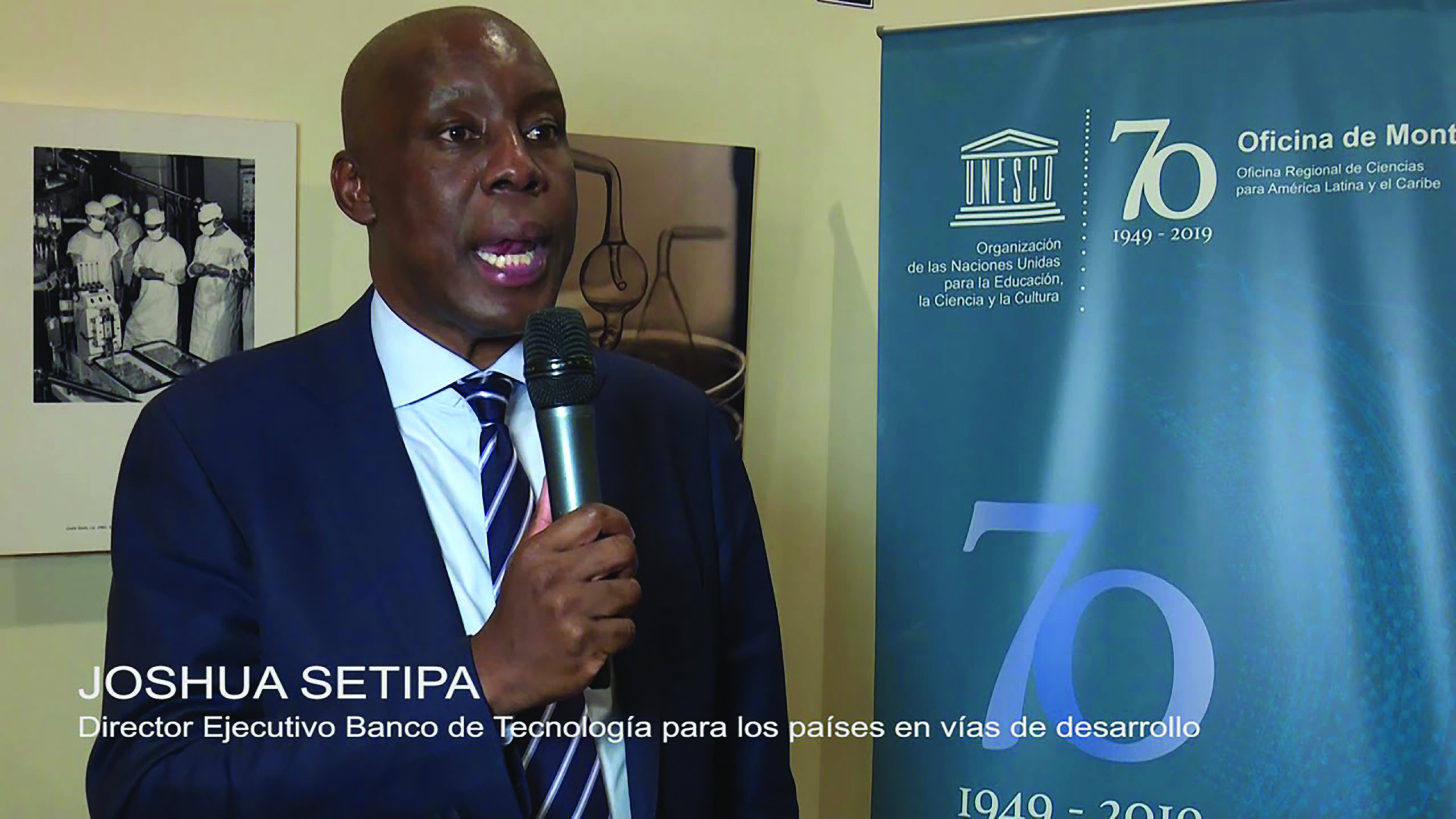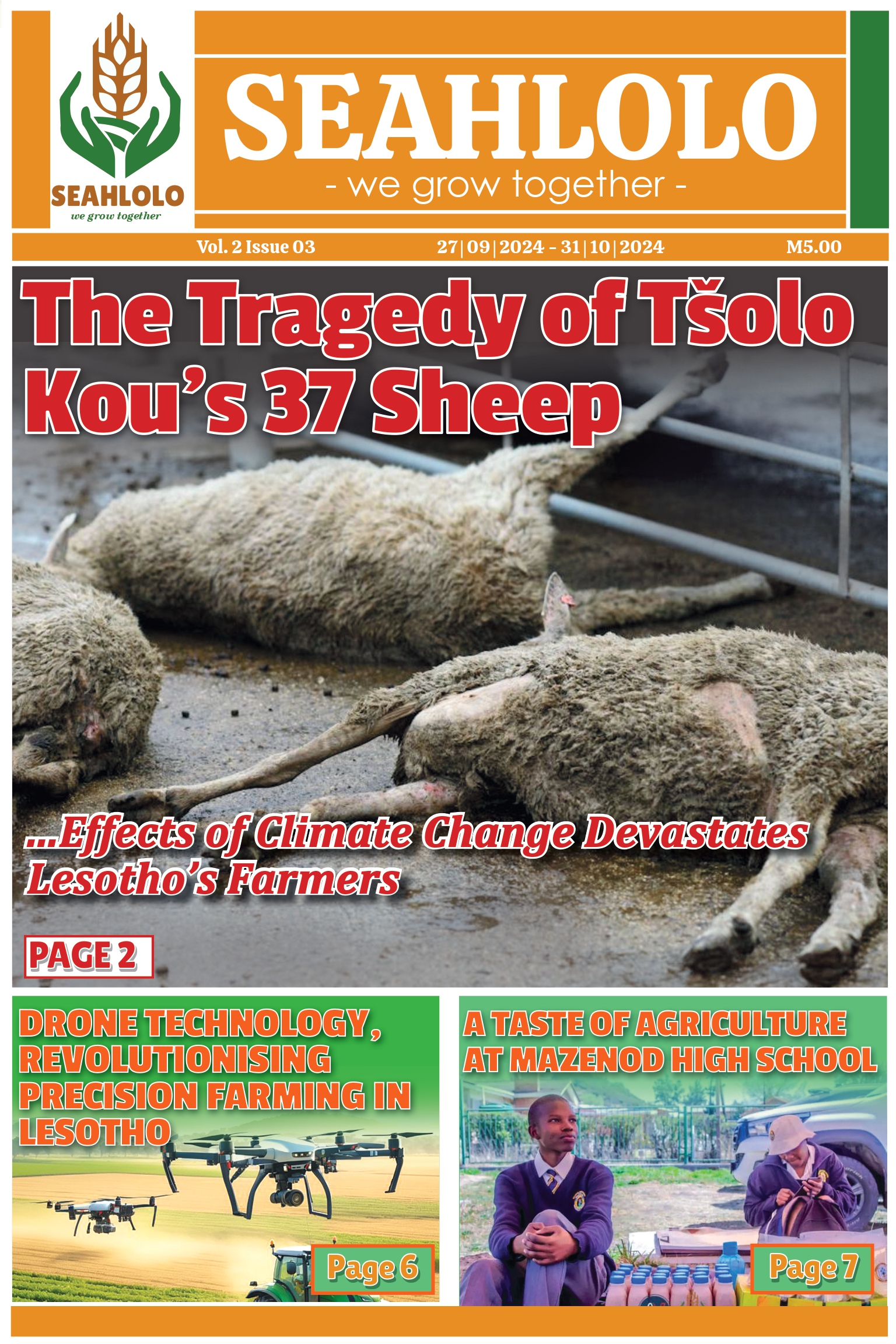Recounts of struggling school dropouts
Ntsoaki Motaung
‘Mamonaheng Emile, 40, dropped out of secondary school in 1999 due to high school fees. At the time she dropped out, Emile was in Form A, now called Grade 8.
Dropping out of school means she missed the knowledge and skills development that would lift her out of poverty and contribute to her economic prosperity.
For the country’s poor children, the four walls of the classroom are their only surest pathway to a better life.
Given their lack of social connections with higher-status people, education is the most important tool they could receive that can bring them success.
Now a mother of three who is struggling to find a permanent job, Emile says if given a chance, she could go back to school.
She was born in Nazareth, a rural community located to the east of the capital, Maseru, and west of the Molimo Nthuse Pass.
“If given a chance, I would go back to school so that I can be able to live a different life from what I am living now,†Emile said.
She was speaking at the launch of the Education Plus initiative last Thursday at ‘Manthabiseng Convention Center in Maseru.
Launched by the government in partnership with United Nations (UN) Lesotho and schools, Education Plus aims to ensure that young adolescent girls in Lesotho are strong, safe, empowered and able to access and complete secondary school.
“I dropped out of school when I was doing Form A (Grade 8) in 1999. This was after my father who was the only breadwinner in the family, had lost his job as a mineworker in one of the South African mines,†Emile said.
For all that is painful about a breadwinner losing a job, it forces change upon the household. It is a loss of livelihood: the ability to support the family financially.
The psychological toll on the family members can be enormous.
“After my father lost his job, our lives changed from better to worse. My parents could no longer afford to pay my school fees or afford other school necessities such as stationery and uniform,†Emile said.
Emile’s story is not strange. It is common for teenagers in Lesotho, especially from rural areas, to drop out of secondary school due to high costs.
The issue of fees is a tall order for families already struggling to put food on the table to even contemplate sparing money, which is not there, to educate their children.
According to the National Strategic Development Plan (NSDP) II, access to education, especially secondary education, continues to be skewed towards urban areas and higher income groups while rural areas continue to suffer disproportionately.
“A number of learners have dropped out of schooling after completing their primary education and have not been able to enter the secondary education cycle while others have dropped during the cycle,†reads NSDP II.
Also speaking at the Education Plus launch last Thursday, Setho Mokhetšengoane, a teacher at ‘Makhethisa High School in Leribe, indicated that studies conducted by international agencies on school dropouts found that Early and Unintended Pregnancies (EUP) were some of the factors contributing to students dropping out of school.
Mokhetšengoane said other factors were the high failure rate and school fees.
“Some of the students are sponsored by the government through the Ministry of Social Development. They usually drop out when they have failed because sponsors do not fund repeating students,†he said.
“The most prevalent contributor is school fees. For example, at the beginning of the year, we had a high number of students who had applied to study at ‘Makhethisa High School. But after the Ministry of Social Development released a list of students that was going to sponsor, a lot of students who were not on the list did not show up at school because they did not have school fees,†he added.
The lack of financial means to send children to high schools impacts their futures. An abrupt end to education exposes students to many social menaces; girls are exposed to teenage pregnancy and child marriage.
Studies indicate that girls who drop out of school are more likely to marry and/or become pregnant.
That is, when a girl is out of school, she becomes more vulnerable to child marriage.
Some studies indicate that girls who have no education are three times as likely to marry by 18 compared to girls with secondary or higher education. Some studies have shown that over 60 percent of women between the ages of 20 and 24 with no education were married before 18.
The longer a girl stays in school, the less likely she is to be married before the age of 18 and have children during her teenage years.
At times, the burden to find funds to pay for education falls on the students themselves. Some boys spent some time working as herd boys and girls as domestic workers, in some cases under exploitive and abusive conditions, to raise funds to pay for their school fees.
In some cases, girls become victims of sexual exploitation by teachers, taxi drivers and “blessers†who offer them money for fees, lunch, transport and other basic items in exchange for sex.
Motšeoa Pitso, 24, said she dropped out of school after the death of her grandmother.
“My grandmother became my guardian after the passing of my parents. After her death, I could no longer afford to pay school fees even though there were relatives who were trying to help,†Pitso said.
“I was not only struggling to pay school fees but there was also no food to eat. I did not have a school uniform. I did not have shoes and I also could not afford to pay for other things that we were requested to pay for school but I soldiered on,†she added.
Unfortunately, she further explained, she fell pregnant a few months after her grandmother’s death.
“That is when I knew it was the end of the journey for me, I had to quit. I stayed at home until a gave birth. After giving birth I wanted to go back to school and my guardian helped me to secure sponsorship from the Ministry of Social Development,†she said.
But being a mother and a student simultaneously was not an easy task for Pitso.
“Now I was a mother and a student. I really could not cope as I could not balance the two and I quit so that I could look after my baby,†she said.
Speaking at a hybrid launch, Anne Githuku-Shongwe, director, UNAIDS Regional Support Team for Eastern and Southern Africa highlighted that Education Plus is centered on the empowerment foremost of young girls and women as they face multiple barriers to a healthy, self-determined life.
“Lesotho is a country where people ask: ‘Where are the boys?’ It is not that we have forgotten about the boys – statistics show that the impact of HIV, pregnancy and violence weighs heavily on girls,†Githuku-Shongwe said.
Education Plus is an Africa-wide response to the urgency of effectively addressing the alarming numbers of adolescent girls and young women acquiring HIV and dying from AIDS, among other threats to their survival, well-being, human rights and fundamental freedoms.
The initiative is led on the country level by ministries of education, health, gender, social development and many more, and co-led by the heads of UNAIDS, UNESCO, UNICEF, UNFPA and UN Women.
The Lesotho launch involved and prioritised young people.
The event included an intergenerational dialogue on the importance of retaining learners in school, providing friendly sexual reproductive health (SRH) services and a curriculum that helps learners transition to the world of work.
Lesotho has in recent years made admirable strides in empowering her people through free compulsory basic education.
The country introduced free primary education from 2000 through 2006 as a major strategy towards achieving the Education for All (EFA) goals.
This initially led to a rapid increase in the net enrollment rate, which currently stands at 82 percent of primary school-aged children (80 percent boys; 84 percent girls).
In a milestone effort to advance progress towards universal primary education, the government in 2010 enacted the Education Act of 2010, legalising the right to free and compulsory education.
Numbers show that in the Southern African region and the African continent at large, Lesotho is in the league of the leading pack in getting children to school.
However, the situation of significant numbers of students in secondary schools failing to complete secondary education threatens to reverse all the huge gains the country has made.
Leader of Basotho Action Party (BAP) Professor Nqosa Mahao, told his party members at a rally held in Roma last weekend that if it becomes government, BAP will make secondary education free to ensure that the needy remain in school, a statement that resonates with the high plight expressed by many Basotho, access to free education at all levels.
On 4 December 2020, the United Nations Office of the High Commissioner for Human Rights wrote a letter to the government of Lesotho, urging it to, among others, continue legislative measures aimed at ensuring quality and inclusive education.
The letter also urged the government to provide sufficient funds and subsidies to ensure the access of children to preschool, secondary and higher education, and take special measures to ensure that children remain in schools, especially in rural areas.








